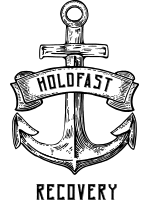
Alcoholics Anonymous and Narcotics Anonymous are the oldest and best-regarded methods of addiction treatment. Even according to scientific trials, AA is the most effective way of overcoming a substance abuse disorder. Many rehab programs and therapy methods are inspired by the style and content of AA treatment programs.
How Did Alcoholics Anonymous and Narcotics Anonymous Start?
Not many people know that Carl Jung, the famous psychiatrist, played a role in the formation of the AA. He directed a young man called Rowland H from Rhode Island to a religious movement called the Oxford Group. Jung suggested that his condition was medically hopeless and that only a spiritual experience could help him.
Rowland H practiced the principles of the Oxford Group, had a religious experience, and overcame his alcoholism. A famous Wall Street banker called Bill W, whose alcoholism was crippling him, tried the method as a last resort.
Seeing the best doctors money could buy hadn’t worked — it was the spiritual awakening that made the difference. Bill W was inspired to share his sobriety success with the world, and the first AA book came out in 1939. NA was founded by Jimmy K. in 1953.
What Are the 12 Steps of AA/NA?
The 12 steps of AA and NA are more dynamic than people realize. Just like every aspect of recovery, it’s not a linear process. You might master a later step before an earlier stage, and you might struggle with one.
You must try to focus on the process of working through the stages rather than judging yourself based on outcomes. Here’s a basic guide to answer the question: What are the 12 steps of AA/NA?
Step 1: Honesty
Addiction causes a level of denial that can be quite challenging for onlookers to believe. No matter how much people push someone into recovery, unless they accept that there’s a problem, overcoming it is almost impossible.
The 12 steps begin with an admission that you are powerless over drugs or alcohol. Once you admit that it’s in control of you and not the other way around, you can get started.
Step 2: Faith
Secondly, you need to accept that there is a higher power in the universe than yourself. If you want God, or any higher power, to act on your behalf, it’s imperative that you believe it can. Accepting a higher power helps you to see life from a different perspective and creates a sense of accountability.
Step 3: Surrender
Now that you have accepted a higher power into your life, welcome them by surrendering fully to a higher purpose. When people feel like their lives lack purpose and meaning, free will can run wild and lead you down dark pathways.
Surrendering to a higher purpose in AA/NA helps you focus on the true meaning within your life so you can feel like a valuable member of society again.
Step 4: Soul Searching
Soul searching is a process, just like recovery. There is no single moment that defines healing. Instead, it’s a culmination of intentions and actions that lead you down the right path. Soul searching involves looking objectively inwards at yourself.
When we’re caught up in addiction, our intentions can end up severely misaligned from how we behave. Soul searching will help you become the person you want to be.
Step 5: Integrity
Most of the people who don’t succeed in recovery struggle most with this step of the AA/NN journey. One of the hardest things in life is being honest about things that make us appear vulnerable in front of other people. However, the more you learn to speak your truth, unfiltered, the more you’ll get from the recovery process.
Step 6: Acceptance
Addiction is often underpinned by low self-esteem and a negative opinion of yourself. Once you learn to accept that everyone has both good traits and bad characteristics, it’ll be easier to accept yourself.
Sometimes, the hardest aspect of acceptance is letting go of the painful stories we tell ourselves about the past. However, once you accept your history, you can start telling yourself new, happy stories about your future. Focus on obtaining the skills necessary to achieve your goals and you’ll be free of addiction for good.
Step 7: Humility
Antisocial behavior, such as using drugs or withdrawing from peers, often stems from a confused sense of self. When you let go and ask a higher power for help, you relieve a huge weight of pressure from your life.
Step 8: Willingness
You’ll write a list of the people you’ve harmed and ponder carefully over your past actions. Instead of feeling guilty or wallowing in emotion, you’ll think of ideas to make amends. Rather than seeing this as a check-box exercise, genuinely show a willingness to make amends.
Step 9: Forgiveness
If there are people in your past who have caused you pain or trauma or hurt you in any way, now is the time to let go. Resentment isn’t constructive for the mind. In fact, it breeds the type of feelings that make you more likely to turn to drugs or alcohol. Letting go of bad feelings — even if they’re aimed at people who do bad things — frees the soul.
Step 10: Maintenance
Throughout the entire process, you’ll be required to check back with yourself. Be totally honest with yourself about progress so that you can move forward.
Step 11: Making Contact
During step 11 of AA and NA, you’ll reach out to your higher power to find out what its purpose for you is. Everyone has a gift in life; no matter what it is, there’s something you can offer the world. When you’re working toward this purpose is when you’ll feel happiest.
Step 12: Service
Service is all about action. This stage is the rest of your life and involves applying everything you learn in AA and NA meetings to help you build a brighter future for yourself.
Advantages of the 12 Steps of AA/NA Explained
The main advantage of the 12 steps are:
- Treatment is free
- You can get a sponsor
- Evidence shows that it’s highly effective
- You’ll meet a vast global peer support network
Book a Place in a 12-Step Program Today
A 12-step program could change your life. Call Holdfast Recovery today at (800) 680-7738 to speak to one of our friendly advisors about how to start rehab.

